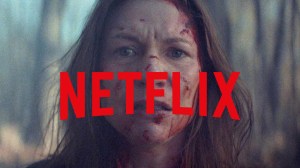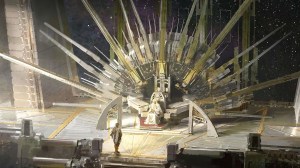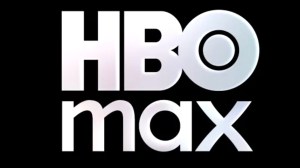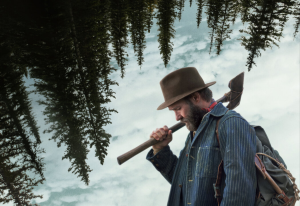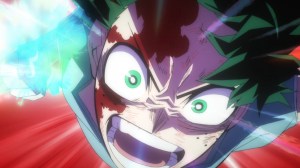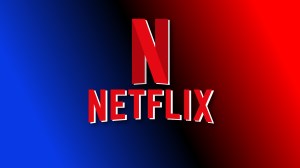Nearly everything surprised me about Guardians of the Galaxy Vol. 3. When the threequel film finally premiered in theaters earlier this month, it took audience expectations and subverted them at nearly every turn, to the point where no amount of speculating about which characters would (or wouldn’t) die or which songs would make up its epic diegetic soundtrack could have prepared fans for what was in store. But the thing that I continue to be most surprised by was Vol. 3‘s sense of finality — not just for its cast, but for the massive Marvel Cinematic Universe franchise that those characters have called home. Some have taken to social media to dub Vol. 3 the final “ending” for the past fifteen years of the MCU, and an outlet through which to process their investment (or lack thereof) in where the franchise is headed next. Even as its clear that the MCU definitely isn’t going anywhere, with a dozen or so movies and Disney+ shows lined up for the next few years, those arguments do have a point. Intentionally and unintentionally, the MCU has shifted into a new normal — which Guardians of the Galaxy Vol. 3 not only illuminates, but helps us accept. Obviously, spoilers for Guardians of the Galaxy Vol. 3 below! Only look if you want to know!
Videos by ComicBook.com
Although the MCU is seen as such a juggernaut, to the point where its characters, lore, and even its behind-the-scenes creators have become part of pop culture, the fact that it got to that point still feels like somewhat of a miracle. The initial, disparate collection of Avengers-related solo films, which are now regarded to be the MCU’s “Phase 1”, took off to a degree that audiences might not have been expecting, turning B-listers like Iron Man, Black Widow, and Loki into household names. While 2014’s Guardians of the Galaxy Vol. 1 was an even bigger risk, it paid off in spades, endearing audiences to a talking raccoon, a talking tree, and other cosmic misfits who had previously been impossibly-obscure parts of the comics. A lot can (and will continue to be) written about why the early films of the MCU worked, but one facet that is undeniable is the approach to characterization. Even at its quippiest, Joss Whedon-est points, the early MCU provided escapism that was still relatable and accessible. At the time, an average moviegoer might not walk in with the knowledge of why S.H.I.E.L.D. and H.Y.D.R.A. have a rivalry, or what an Infinity Stone is, but they still wanted to see the heroes they already met through another satisfying adventure. Any teases of what could be on the horizon, or post-credits scenes that tied into whatever the next tangentially-related movie was, were just the icing on the cake. By the time Marvel Studios started to thread the needle of its “Infinity Saga” story between these different film series, it felt like a revelation, tying a bunch of characters that fans already wanted to follow, regardless of wherever they went next.
Fast-forward to the summer of 2019, in the fallout of the Infinity Saga culminating in that year’s blockbuster Avengers: Endgame. At the time, some were bold enough to suggest that the MCU could just call it quits then and there — but obviously, it was going to march along into the future. That future looked both like the early days of the MCU and like something completely unprecedented, with movie and TV projects that introduced wholly new characters (Moon Knight, She-Hulk: Attorney at Law, Eternals, and Ms. Marvel) or sought to turn existing heroes into vehicles for events (Doctor Strange in the Multiverse of Madness, Thor: Love and Thunder). While there wasn’t a clear overarching storyline tying all these projects together, there was a sense that the franchise was free to experiment — and it did. Nearly every post-Endgame project has tried something new with tone or genre, tackled the complicated feelings of grief, and folded in comic lore that would have seemed way too wacky in the franchise’s grounded early days. It also can not be overstated how much better the franchise has gotten at reflecting our world’s diversity onscreen, as its new crop of heroes have begun to represent a wider swath of cultures and backstories. Hell, the concept of a female-led MCU project has now become so commonplace (outside of the minds of occasional whiny trolls online), that it’s hard to believe that Captain Marvel was the first less than half a decade ago.
The reality of the current MCU absolutely deserves to be celebrated, but some of its shortcomings also need to be acknowledged. Even though there were some standout character-driven moments in Phase 4 of the franchise, there were also a lot of incidents where plot took precedent. Instead of ruminating in the story that was currently being told, a number of Phase 4 installments worked overtime to tease whatever story could possibly come next, littering movies and Disney+ shows with overly-complicated Easter eggs and ambiguous endings. (This approach became downright glaring when the COVID-19 pandemic shifted around the release order of some of those stories, causing reported rewrites to some endings.) The need to leave breadcrumbs for whatever could be next became very apparent with the Disney+ shows, with titular heroes not “earning” their superhero costume until the penultimate or final episode, or said titular heroes being overshadowed by the promise of a crossover with another popular character.
All the while, the majority of projects in Phase 4 have left the long-term future of its characters unclear — She-Hulk, Spider-Man, Shang-Chi, Moon Knight, Werewolf By Night, Man-Thing, and Namor could be on the roster of the next two Avengers films… or we could just never see them again. The Eternals could one day get out of their literal cosmic cliffhanger with Arishem… or we could just never see them again, either. Even as Phase 4 has introduced or touched base with more characters that we love, the need to put the cart before the horse has squashed the opportunity to really get endeared to them, the way that we did across multiple years of storytelling for the original six Avengers and the Guardians. With that cart now confirmed to be leading towards a 2026 adaptation of Avengers: Secret Wars, and even more new titles being slated for the years leading up to that, the end result could ultimately be a feature-length guessing game of pointing out characters we recognize… but still only having scratched the surface of who most of them are as people.
Now that the Guardians’ saga has been “wrapped up” in Vol. 3, the narrative shortcomings surrounding them in the current MCU only feel more apparent. For starters, on a symbolic level, the Guardians were a sort of last bastion of the early days of the franchise, as every other Phase 1 and 2 protagonist has either died (Iron Man, Captain America, Black Widow), passed the bulk of their superhero duties onto someone else (Hulk, Hawkeye), or narratively languished (Thor, Ant-Man). Vol. 3 works so well, in part, because it has next-to-no connections to the rest of the MCU, outside of acknowledging what happened to Gamora in Avengers: Infinity War and Avengers: Endgame. There are no Kang variants or incursions or shoehorned cameos in sight, and any Marvel references either tie back to the Guardians themselves, or to even weirder parts of comic lore. Even when it’s confirmed that, actually, none of the team is getting killed off in Vol. 3, the feeling of relief and genuine emotion surpasses any desire to speculate about where the characters will go next. (The debate around Vol. 3‘s final title card proves this — the film tells us that “The Legendary Star-Lord Will Return”, but time will only tell if that’s actually confirmation for something Marvel has in the works, or a tongue-in-cheek acknowledgement that Peter Quill’s ongoing problems have gotten a lot more ordinary.) We might not be able to go on a massive Easter egg hunt in Vol. 3, but as a result, we’re able to just sit back and enjoy the movie as its own entity — something that hasn’t always been the case with other post-Endgame installments.
It doesn’t feel hyperbolic to say that Guardians of the Galaxy Vol. 3 is one of the best installments of the post-Endgame MCU — but it also makes clear how fundamentally different that MCU is compared to the one we first fell in love with. While the franchise has grown in some beautiful and necessary ways in the past few years, it has also begun to shift the way that its characters — and much of the audience — engage with its sprawling fictional world. While those shifts are inevitable across decades of superhero projects, this new evolution of the MCU might be the first instance of it happening in real time… and it might be past time to start accepting that. In a perfect world, every hero in the ever-growing current MCU would get a chance to shine like the Guardians, growing and changing and gaining more fans across multiple solo projects or cameo appearances in the franchise. That would make the inevitability of the live-action Secret Wars — a storyline that, in both contexts of the comics, plays directly off of the years and decades readers have spent with certain characters and storylines — feel like an actual culmination, as opposed to a drastic status quo change way too soon. While we might not get to that perfect world, at least we’ll always have the Guardians movies, in all of their weird, satisfying glory.
Guardians of the Galaxy Vol. 3 is now playing exclusively in theaters.

